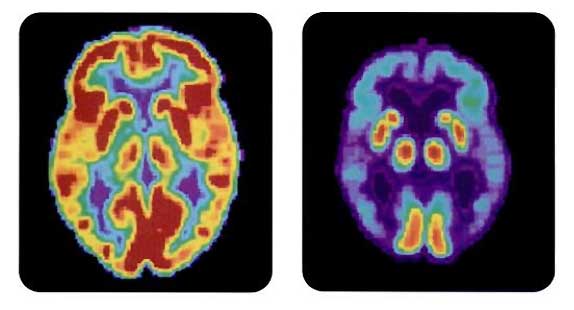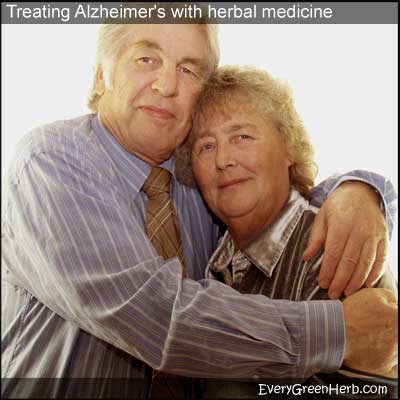Herbs for brain health
The brain depends on good nutrition just like the rest of our body. As we age, the foods we eat are even more important to brain health.

Neuroscientists have conducted studies that show which foods are best for the brain.
Caviar (fish eggs) is a top pick for giving the brain the nutrients it requires. Fatty fish, ground flax seeds, almonds, dark chocolate, seafood, berries, cherries, red wine, dried apricots, prunes,and olive oil are also mentioned as top foods.
The Mediterranean diet is good for the brain. Staples include a lot of vegetables, fruits, cheese, eggs, yogurt, beans, nuts, seeds, whole grains, seafood, and olive oil.
People eating a Mediterranean diet try to avoid all processed foods, fast foods, hydrogenated vegetable oils including margarine and shortening, and red meat.
With fruits like berries, the darker the better. Same goes for chocolate and wine. Try to eat a rainbow of colors every day!
Any food with high levels of fatty 3 acids are excellent choices for brain health. A three ounce serving of salmon filet can provide your daily requirement.
Good diet, exercise, clean air, and a healthy lifestyle help protect the brain and keep it functioning from childhood to our senior years.
Boosting brain function with herbs
Many herbs are known to keep the brain functioning at peak capacity. Ginseng, ginkgo biloba, lion's mane, rosemary, sage, peppermint, licorice, St. John's Wort, lemon balm, green tea, and turmeric are the most well known.
Sweet flag is used for brain health in Asia and India. It strengthens the nervous system and improves memory. Gotu kola and lemon balm are also used for the brain.
In South America Yerba Mate is the go to herb for the brain. Studies show that Yerba Mate improves memory and is useful in the treatment of dementia.
Do you find yourself drifting off and getting distracted? Read my latest blog about boosting concentration and improving focus with herbs.
Water is important to brain health.
Did you know that the brain is 80% water? Staying hydrated is very important to brain health so drink plenty of water every day.
Herbal teas can help you consume more water so drink them everyday. My favorites are mint, chamomile, and lemon balm.
The blood brain barrier
Did you know that your brain has built in protections to guard against disrupters? It is called the blood brain barrier.
This feature of the brain keeps your brain stable no matter what foods and drinks you put in your system. Some, like alcohol get through, but most toxins are diverted away and are excreted via the kidneys, colon, and lymphatic system.
There are many conditions that involve the brain including seizure disorders, epilepsy, Parkinson's disease, depression, stroke, cancer, cerebral aneurysm, Alzheimer's and dementia. In this post, I am concentrating on Alzheimer's and dementia.

More about the brain
Studies of brain scans show that consuming 4 grams of DHA (found in fish oil) is very good for reducing the chances of getting Alzheimer's later in life. There is a 70% lower rate of Alzheimer's in people that get that get enough of this nutrient during middle age. That is amazing news!
Getting nutrients from real food is the best, since supplements are not as bio-available as food sources. Of course supplements come in handy when there are deficiencies in the diet.
Trans fats are very harmful to the brain especially when combined with higher levels of copper, iron, and zinc. If you have good amounts of these minerals in your blood, you should really take note.
Stimulates like coffee are dehydrating to the body and brain. Drink extra water when consuming any form of caffeine. Because of their estrogen hormones, women should be especially careful as the female brain seems to be less tolerant of stimulating foods.
Avoid processed foods like lunch meats, processed cheese, and commercial baked goods.
The body and brain need at least 7 hours of sleep every night. The brain also needs at least 8 hours of fasting every day which usually takes place when we sleep. Going without food for 12 hours is even better. A good rule to follow is having nothing to eat or drink after dinner until breakfast (except water).
To learn more about brain health, visit neuroscientist Lisa Mosconi's website. She is very knowledgeable and a good teacher.
Delaying the onset of Alzheimer's and dementia
Most Alzheimer's patients have a noted tryptophan deficiency. Tryptophan is an essential amino acid that cannot be synthesized by the body and therefore must be part of the diet.
Eating poultry, bananas, cottage cheese, sunflower seeds, pumpkin seeds, avocados and other foods rich in this nutrient may delay the onset of Alzheimer's and improve existing symptoms.
Slow mental decline with ginkgo biloba, ginseng, and other herbs.
Continual mental decline in the elderly can be slowed with the use of ginkgo biloba or ginseng. These two herbs are known to improve memory and concentration.
Read more about the healing properties of ginseng.
Read more about the healing properties of ginkgo biloba.
Lemon balm contains flavonoids that help improve memory. Rosemary, peppermint, basil, ginger, turmeric, and sage also improve memory and improve brain function.
Other herbs that delay the onset of dementia are bilberry, cinnamon, and evening primrose. Research shows that cannabis may also help delay the onset of dementia. Royal jelly from honeybees can also help.

What is Alzheimer's?
Alzheimer's is traumatic for the patient and loved ones. It is a degenerative disease leading to memory loss and a decrease in cognitive brain function.
Symptoms of Alzheimer's include memory loss, disorientation, especially at night, and possibly increased aggression. As the disease progresses, brain cells die and the brain actually shrinks in size.
Vitamins and good diet can help slow Alzheimer's.
Herbs, supplements, and good nutrition can help slow Alzheimer's disease. Vitamin E, thiamin, Vitamin B-6, Vitamin B-12, fish oil, and acetyl L carnatine can slow the formation of plaque inside the brain which causes reduced cerebral blood flow and cell death. Read more about vitamins and minerals here.
Avoid red meat and dairy products. Include lots of eggs, soy, sea vegetables, whole grains, nuts, seeds, fresh fruit, and fresh vegetables in the diet. The brain needs live enzymes at every stage of life!
If teeth are missing and chewing is a problem, grind hard foods like seeds and add them to to smoothies. Add foods to the diet that are rich in B vitamins such as brown rice, brewer's yeast, molasses, liver, fish, flax seed oil, and wheat germ to the diet. These foods also block aluminum absorption which is a good thing.

Avoid heavy metal build up by detoxing with herbs.
Many studies show that Alzheimer's disease is related to a build up of aluminum and heavy metals in the body and may call for a detox. Beware of fluoridated water which increases aluminum absorption by up to 600%.
Purchase flour that does not contain aluminum as one of the ingredients. Buy aluminum free baking powder.
Switching aluminum pans for cast iron or enameled ones can also help keep aluminum out of the body. Avoid aluminum utensils, aluminum foil, deodorants containing aluminum, and drinks that come in aluminum cans.
Another tip worth considering is having silver amalgam dental fillings replaced. Some studies show that they cause mercury toxicity.
Not only herbs, but exercise can help slow Alzheimer's.
Daily exercise can prevent or slow the progression of Alzheimer's and dementia by increasing available oxygen.
Decreasing prescription diuretics and pain pills can also help.
Many times there is a diagnosis of dementia or Alzheimer's when the problem is actually over-medicating with prescription and over-the-counter drugs. Learn more about Alzheimer's Disease at http://www.alz.org.
*Always consult with your healthcare professional before taking any herbal remedy especially if pregnant, nursing, or taking other medication.
Sources:
https://www.ncbi.nlm.nih.gov/pmc/articles/PMC8363108/
https://pubmed.ncbi.nlm.nih.gov/29653991/
Thanks so much for reading my blog. Jan.

*Note - the information on this website has not been evaluated by the Food and Drug Administration.
© 2005-2024 website design and content by Janice Boling